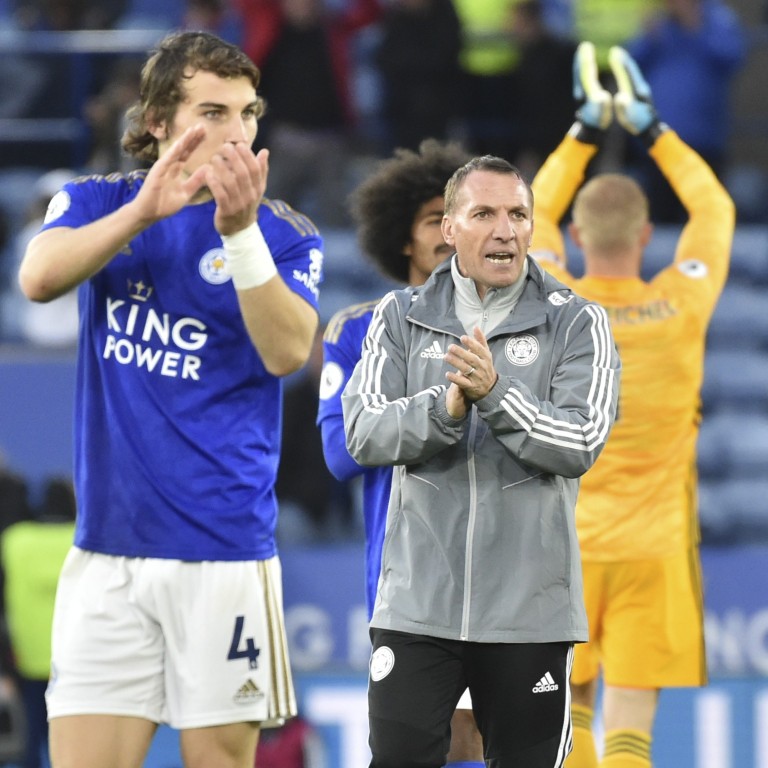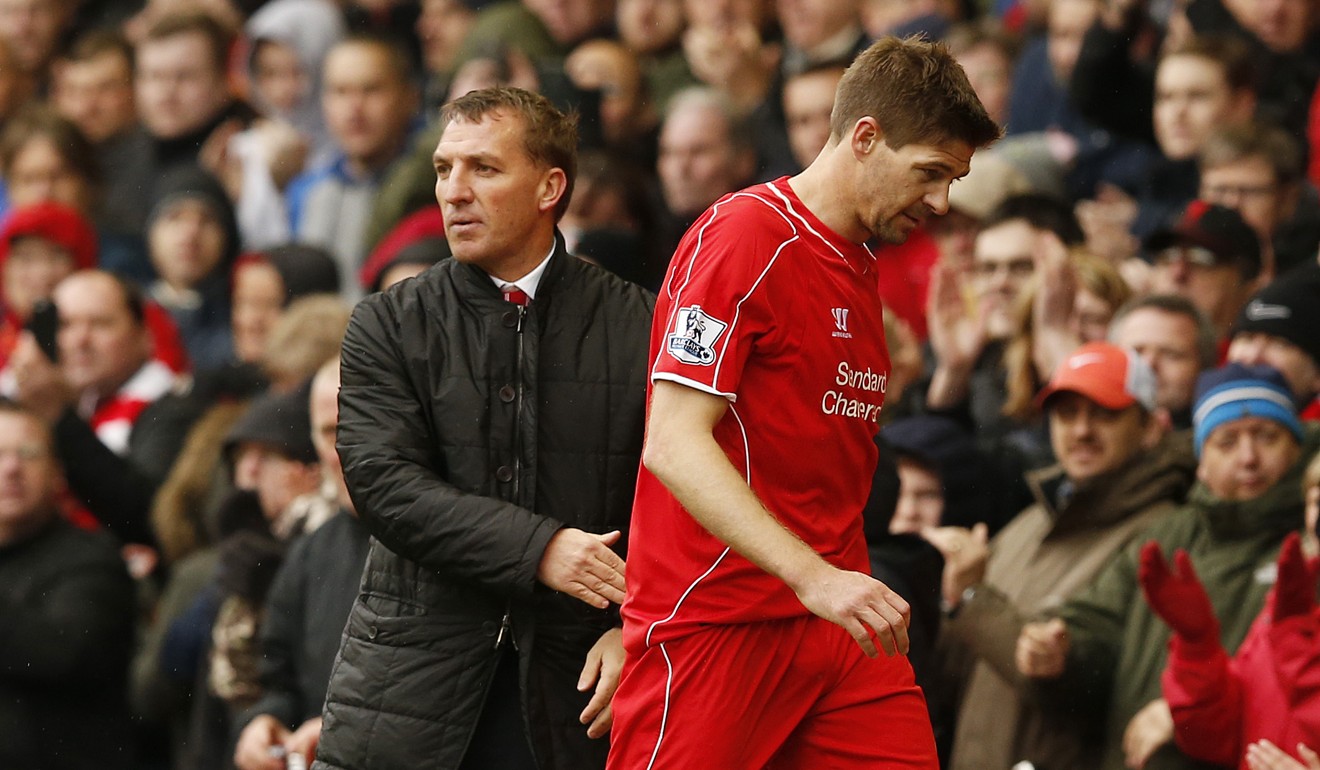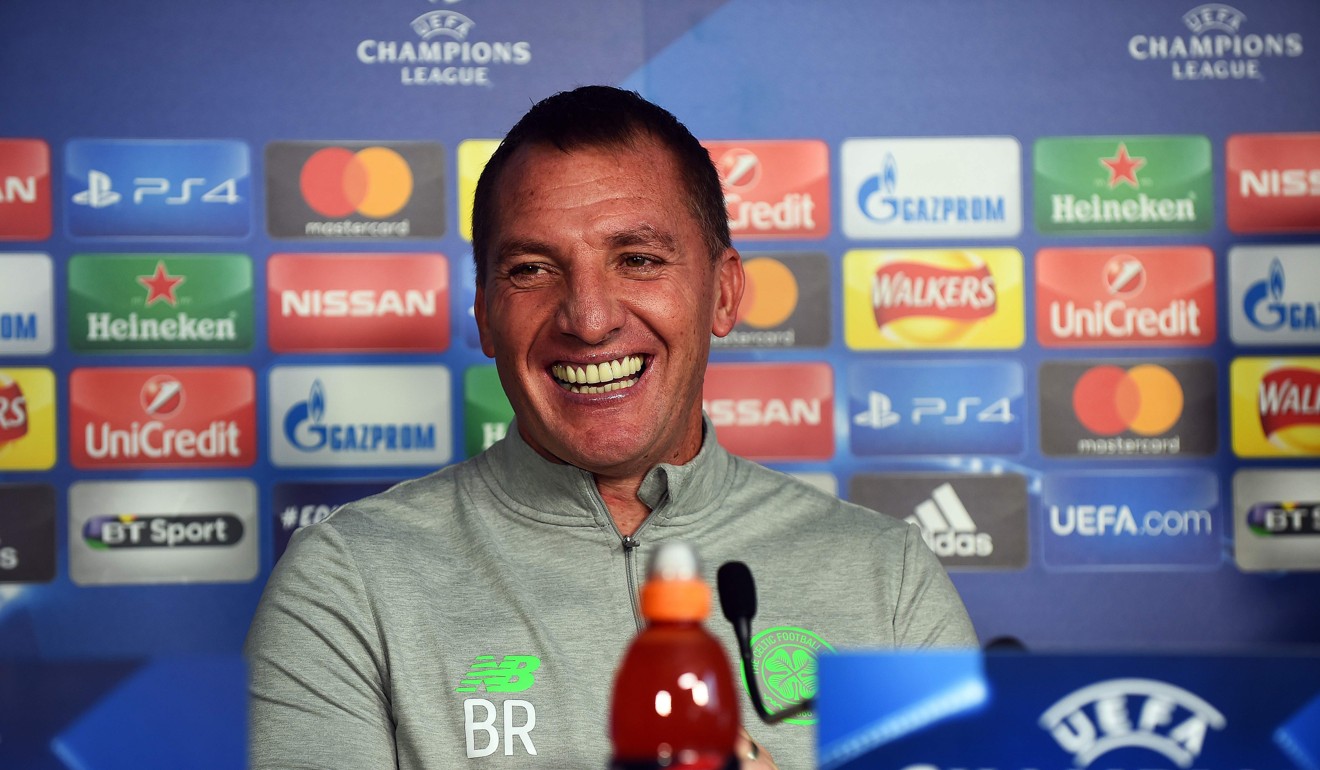
Maverick Brendan Rodgers returns to Anfield with his stock rising and a chance to show he has matured since Liverpool days
- Leicester City manager was in charge at Anfield between 2012 and 2015
- Northern Irishman is back in contention for a high-profile job after impressive start to Leicester career
Liverpool came so close. Brendan Rodgers came so close.
On Saturday, the manager who was nearest to bringing the league title to Anfield for the first time since 1990 returns to Merseyside as Leicester City’s manager. There will be few regrets on either side.
In the spring of 2014, the Northern Irishman was a heartbeat away from joining the pantheon of the club’s great bosses. Liverpool were in pole position to win the title with three matches left. The most difficult game was Chelsea at home. A draw would have reinforced the advantage, but Rodgers chased the victory.
Five years on, Rodgers is back at Anfield for the first time since he was sacked to make way for Jurgen Klopp. His positivity and personality are undimmed. Leicester may be seven points behind Klopp’s side in the table but they are third in the league, just a couple of points behind City. The Northern Irishman knows he is a winner. He will strut into the stadium as if he was still in charge.
Rodgers went from being the most highly sought-after manager in the division to an afterthought on the wish lists of Premier League clubs.
The Kop were desperate to love Rodgers after his appointment in 2012. The owners, Fenway Sports Group (FSG), were even more smitten. They wanted a new kind of manager, one with media savvy who understood analytics. He spoke the same language as John Henry, the principal owner. Kenny Dalglish, Rodgers’ predecessor, was obtuse and incomprehensible to the Boston-based millionaire. FSG wanted to extend the reach of Liverpool by creating a media empire around the club. The Being Liverpool fly-on-the-wall documentary was the first step. It is inconceivable that Dalglish would have fronted a television show like this. Rodgers was perfect. He relished the limelight, but there were times when the programme verged on mockumentary. It was all beyond parody.
The harsh eye of the cameras did the manager no favours, but it did no long-term damage. The closing days of Rodgers’ first transfer window were more dramatic. He undermined FSG’s faith in a series of power plays as the deadline clock ticked down. Henry expressly forbade Andy Carroll’s departure unless “a couple” of strikers were signed. The deal was almost done to bring Daniel Sturridge to Anfield from Chelsea when Rodgers shifted Carroll on loan to West Ham United. Then the manager scuppered the Sturridge agreement and attempted to bring Clint Dempsey from Fulham, offering Jordan Henderson as part of the transaction.
This was the type of ploy Benitez or Jose Mourinho might have tried. They had Champions League trophies to underline their credentials. Yet even they might have blanched at Rodgers’ next move. The next morning he explicitly claimed he wanted to keep Carroll at Anfield, but had to move the Geordie on because of money. It pointed the finger at the owners.

There was an explosion in Boston. FSG’s trust was eroded. Within three months of employing Rodgers, Henry was wondering whether he had made a mistake.
Rodgers’ bosses were nervous of his actions and motives. They enjoyed how he fashioned the team on the pitch, but doubted his nous in the transfer market and ability to pick a player. Yet, during those quixotic months when the title appeared to be more than just a dream, his stock rose ever higher.
The fall was coming. Luis Suarez had lost faith in Rodgers even before the 2013-14 season. Raheem Sterling was first bemused and then appalled by his treatment. Gerrard, lauded in public by his manager, was edged out the door. Rodgers’ early recruitment shenanigans rebounded over the rest of his Liverpool career. The infamous transfer committee was an attempt to limit his power.

Later, three years at Celtic rehabilitated a reputation that had taken a number of blows and in Scotland Rodgers’ self-confidence was as strong as ever. He always had a hankering to return to England.
The Kop will give their former manager a warm welcome, but behind the scenes it will be distinctly lukewarm. Yet Rodgers is hot property again. The dressing room at Leicester is behind him and his style of coaching and upbeat demeanour suit the Midlands club. With Mauricio Pochettino in trouble at Tottenham Hotspur, he again has one eye on a big-six job.
It might make more sense to stay put. Leicester are as well-equipped as any side in the Premier League to end Liverpool’s winning start to the season. They could easily finish above Spurs, Manchester United, Arsenal and even Chelsea.
The performance on Saturday will indicate how far he has matured in the four years since leaving Anfield. Rodgers is close again.

